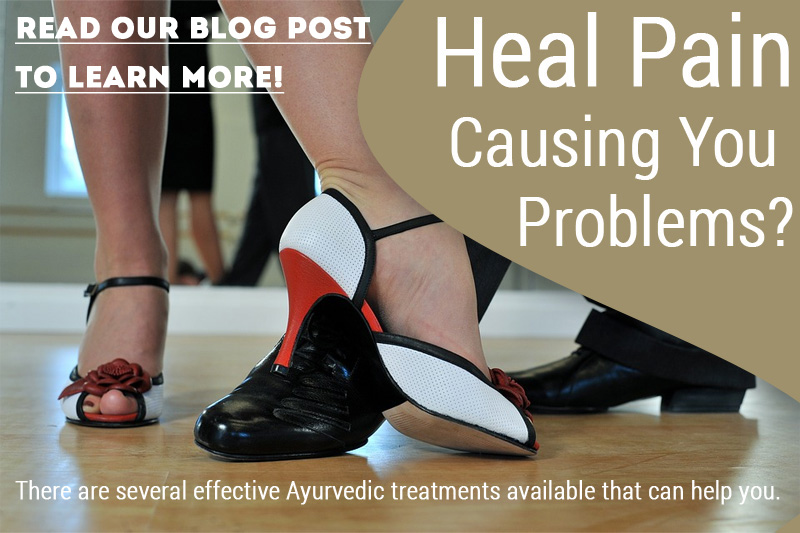
“I have to dance 10 minutes every morning to be on my feet says a client who came for a consultation in our clinic a few weeks ago.”
It seems to be a common issue these days at our clinic. It’s our feet that keeps us up our entire life, if they are in pain how will we walk? This is an incapacitating condition; how will we walk if we are not able to put our feet on the ground?
Perhaps it is the piercing, thorny kind of pain that is the reason, called Vatakantaka in Ayurveda, spurs are also a possible cause of this condition. Vatakantaka affects a wide range of people across all ages from teenagers to the elderly. As for every disease in your lifestyle, food and your habits play an important role in this condition.
So, is there a role of food in Heel pain? Yes, there is a big role, heel pain is primarily caused by a condition called Plantar fasciitis. (Fascia are cushion like structures which extend from heel to fingers and inflammation caused there at plantar fascia is called Plantar fasciitis).
Foods which are spicy and sour, foods which are cold, excessive usage of salt in your diet, not drinking enough water according to ones need are the predisposing factors which contribute to inflammation in Plantar Fascia.
Running more than usual, walking on hard surfaces consistently, and working too much on cold, hard surfaces are some other predisposing lifestyle factors which contribute to Plantar Fasciitis.
Heel pain can be classified into:
- Plantar fasciitis – condition of inflammation of the tight band of tissue that forms the arch of the foot.
- A calcaneal spur or heel spur – occurs when a bony outgrowth forms on the heel bone.
- Heel Bumps or “Pump Bump,” – caused by pump-style shoes with stiff, high heels.
- Retrocalcaneal bursitis – when the bursae (fluid-filled sacs) around your heel become inflamed.
- Achilles tendonitis – an inflammation of the Achilles tendon.
- Flat feet – People who have a low arch, or no arch at all are said to have flat feet.
- Heel pad Disorder – pain that occurs in the centre of the heel.
- Tarsal tunnel syndrome – occurs when the posterior tibial nerve, becomes compressed and damaged.
- Diabetic Neuropathy – damage to the nerve endings at the feet in Diabetics causing heel pain.
- People with intervertebral disc prolapse have heel pain as a major symptom.
- Increase of Uric acid in blood can also cause heel pain
- Arthritis can also cause heel pain.
Preventative Measures
Obesity, wrong diet, wrong shoes, long standing stools, and lack of exercise are common causes.
Treatments
There are several effective Ayurveda treatments available. The complete success of treatment requires dietary planning and systematic exercise.
Application of herbs like turmeric around the affected region.
Immersing feet in lukewarm salt water is found to be helpful.
If it is not relived by these consult your primary health provider or alternatively an Ayurvedic physician. If you need more information or help call us on 0121 777 7007.
